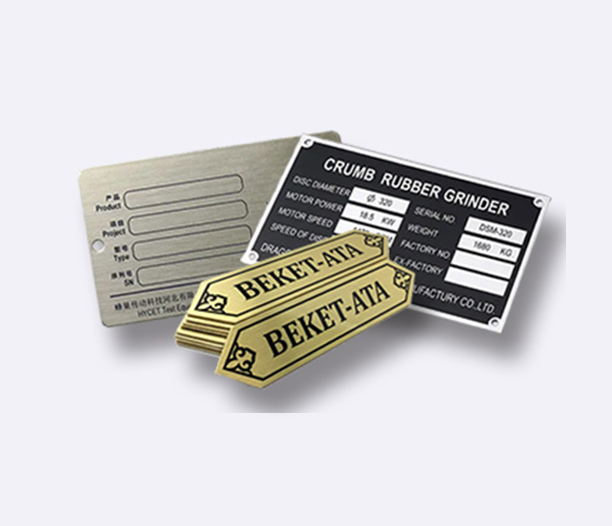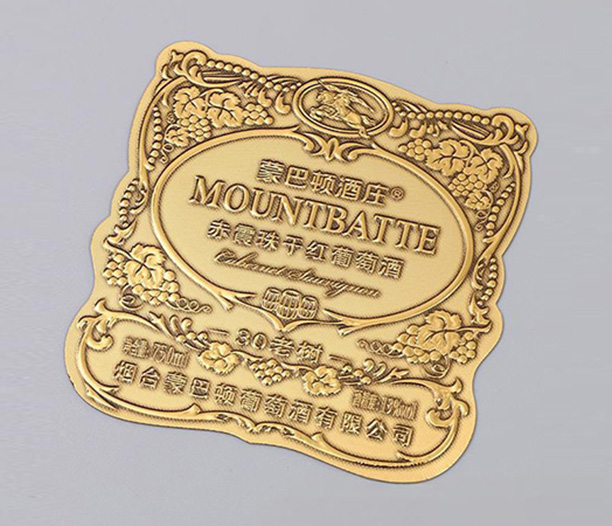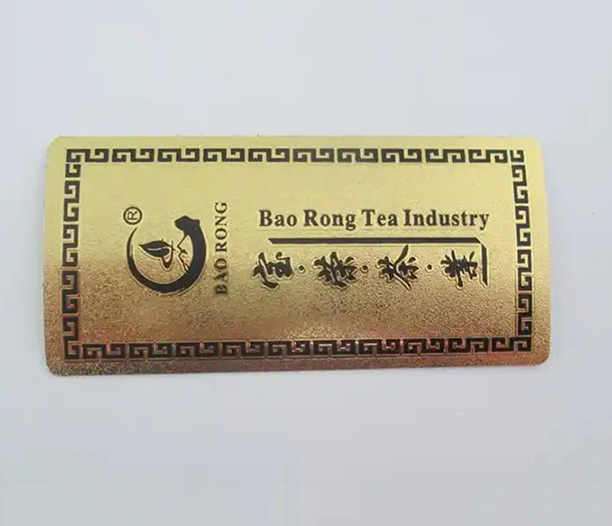Hey there, let's talk about something you see everywhere in the industrial world but might not give much thought to: Aluminum Tags. Seriously, walk through almost any factory, power plant, construction site, or warehouse in America, and you'll spot these little metal workhorses. They're on machines, valves, electrical panels, equipment assets, and pipelines. Ever wonder why aluminum tags are practically the default choice across so many different sectors? It's not just tradition; there are some rock-solid, practical reasons behind their dominance. Let's break it down.
1. Tough as Nails: Built to Last in Harsh Real-World Conditions
Let's face it, industrial environments aren't kind. Think grease, oil, chemicals, solvents, constant vibration, extreme temperatures (scorching summer heat to freezing winters), UV radiation beating down outdoors, and just plain old physical abuse. Aluminum tags shrug this stuff off.
- Corrosion Kings (and Queens): Aluminum naturally forms a super-thin, protective oxide layer. This is its built-in armor against rust and corrosion. That's a massive win over plain steel tags, which would be a flaky mess in no time without constant upkeep. You can kick this up a notch with processes like anodizing (which makes that oxide layer thicker and harder) or coatings. This makes aluminum tags perfect for chemical plants, marine applications, outdoor utilities, or anywhere moisture or nasty chemicals are present.
- Scratch & Dent Resistant: These tags are tough. They won't crack like plastic tags can, and they resist scratches and dents way better than softer metals. That means the crucial information they hold – asset numbers, safety warnings, voltage ratings – stays readable for years, not months. That legibility is non-negotiable for safety and maintenance.
- Weatherproof Warriors: Rain, snow, sleet, hail, relentless sun? No problem for a properly finished aluminum tag. They don't warp, fade excessively (especially with good engraving or printing), or become brittle like some plastics do under UV exposure. They handle the American climate extremes, from Arizona deserts to Minnesota winters.
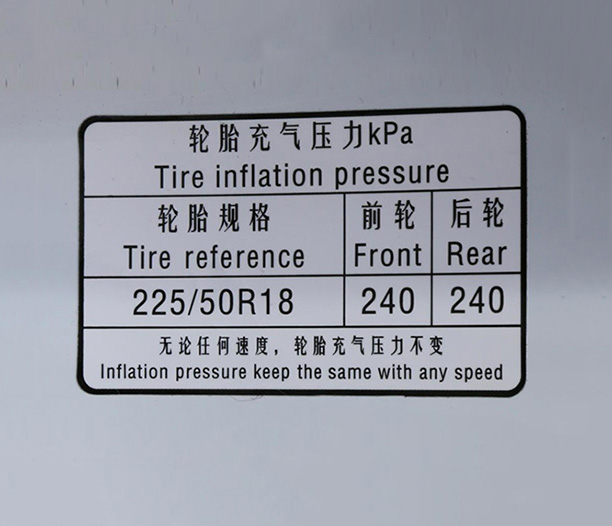
2. The Customization Champs: Make It Exactly What You Need
One size doesn't fit all in industry. The beauty of aluminum tags lies in their incredible flexibility to be made exactly how you need them.
- Marking Magic: Need information permanently etched in? Engraving (stamping or laser) into the aluminum creates marks that are part of the metal itself – they literally cannot wear off or be removed without destroying the tag. For color-coding or complex graphics, printing (like durable screen printing or UV-resistant digital printing) onto a coated or anodized surface works great. Etching and filling is another super durable option. Aluminum tags accept all these methods brilliantly.
- Shape Shifters: Round, rectangle, square, oval, custom die-cut shapes... you name it. Aluminum tags can be fabricated into virtually any shape required to fit the space or application. Need a small tag for a valve stem? Got it. Need a large, rectangular plate for a control panel? No sweat.
- Hole-in-One (or Two, or Three): How do you attach it? Aluminum tags can be punched with holes for rivets, screws, bolts, or zip ties. Need adhesive? A smooth, clean surface on the back of a aluminum tag bonds exceptionally well with industrial-grade adhesives. Some even come with pre-applied super-strong tape. Options galore!
- Information Powerhouse: From simple serial numbers to complex wiring diagrams, safety warnings (OSHA compliance, anyone?), barcodes, QR codes, company logos, and multilingual text – aluminum tags provide the real estate and durability to hold all the critical info you need to communicate clearly and permanently.
3. Lightweight Yet Strong: Easy to Handle, Hard to Hurt
This is a killer combo. Aluminum tags offer a fantastic strength-to-weight ratio.
- Easy Peasy Installation & Handling: Compared to heavier materials like stainless steel or brass (which are also great but often pricier and overkill for many uses), aluminum tags are light. This makes them easier for workers to handle, carry in bulk, and install overhead or in awkward positions. Less fatigue, faster application.
- Surprisingly Rugged: Don't let the lightness fool you. That inherent strength means they resist bending and impact damage far better than plastic tags. They hold their shape and integrity under normal industrial knocks and vibrations. You get durability without the unnecessary heft.
4. Cost-Effective Champions: Serious Bang for Your Buck
In business, value matters. Aluminum tags hit a real sweet spot.
- Material Matters: Aluminum itself is generally less expensive than metals like stainless steel or brass, while offering vastly superior longevity and performance compared to cheaper plastic tags that might need frequent replacement.
- Long-Term Savings: Think Total Cost of Ownership (TCO). Because aluminum tags last so long, resist fading, and don't need replacing every few years like flimsy plastic or corroded steel tags, they save significant money over time. Less downtime for re-tagging, less labor cost, less material cost in the long run. They're an investment in lasting identification.
- Efficient Production: Aluminum is easy to work with – it cuts, stamps, engraves, and prints efficiently. This keeps manufacturing costs competitive, especially for medium to large batches of aluminum tags.
5. Where You'll Find Aluminum Tags Rocking It (Industry Spotlights)
Let's get specific about where these tags earn their keep:
- Manufacturing & Plant Floor: Machine ID plates, maintenance schedules, safety warnings (LOTO!), electrical panel labels, pipe markers, asset tracking tags. Aluminum tags handle the grease, vibration, and chemical exposure.
- Utilities & Energy (Power, Water, Gas): Valve identification tags (critical!), meter tags, transformer labels, pipeline markers, pole tags, safety instruction plates. Their corrosion resistance is vital here, especially outdoors and underground.
- Aerospace & Defense: Component ID, part numbers, serial plates, safety labels on ground support equipment. Demands extreme durability and reliability – met by aluminum tags, often anodized for extra toughness.
- Construction & Heavy Equipment: Asset ID plates on excavators, bulldozers, cranes, generators. Safety decals (load ratings, hazards). Needs to withstand dirt, weather, and job site abuse. Aluminum tags deliver.
- Transportation & Logistics: Fleet numbers on trucks/trailers, container IDs, railcar tags, warehouse rack labels. Exposed to the elements and rough handling? Check.
- Telecommunications: Equipment IDs in cabinets and on towers, splice locations, cable markers. Often outdoors, needing long-lasting legibility.
- Oil & Gas: Rigorous environments demand the corrosion resistance and durability of aluminum tags for valve tagging, equipment ID, safety signage, and pipeline markers.
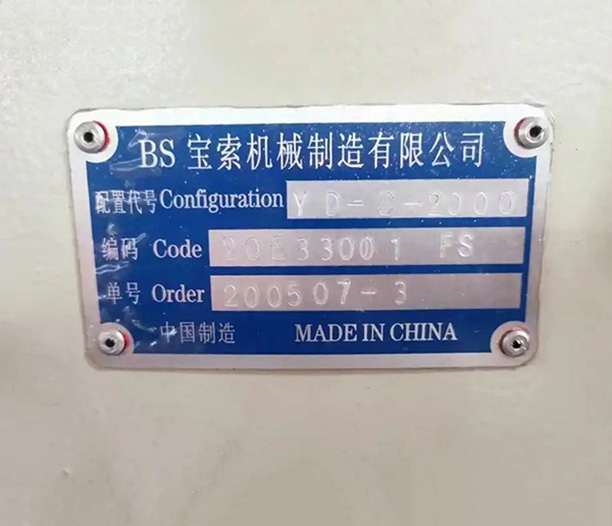
6. Playing by the Rules: Meeting Standards
In many industries, proper identification isn't just good practice; it's the law or required by specific standards. Aluminum tags are often the go-to solution for compliance:
- OSHA (Occupational Safety and Health Administration): Requires clear, durable labeling for hazards, energy sources (like LOTO), exits, and more. Aluminum tags with engraved or permanently printed warnings are a compliant, reliable choice.
- ANSI (American National Standards Institute): Standards like ANSI Z535 for safety signs and tags specify requirements for durability, legibility, and weather resistance – areas where aluminum tags excel, especially for permanent hazard messaging.
- ISO (International Organization for Standardization): Asset management standards (like ISO 55000) rely on permanent, reliable identification, which aluminum tags provide.
- Industry-Specific Standards: NFPA (electrical), ASME (boilers/pressure vessels), API (oil & gas) all often require durable metal tags for critical component identification and safety. Aluminum tags frequently meet or exceed these requirements.
The Bottom Line: Reliability You Can Tag On
So, what's the verdict? Aluminum tags aren't popular by accident. They deliver a powerhouse combination of durability (laughing off corrosion, weather, and abuse), versatile customization (be any shape, hold any info, attach any way), lightweight strength, and excellent long-term value. They meet the tough demands of real American industrial workplaces, from the factory floor to the oil field to the construction site, while helping companies comply with important safety and operational standards.
When you need identification that lasts as long as the equipment it's on, communicates clearly and permanently, and does it all without breaking the bank over time, aluminum tags consistently prove they're the smart, reliable choice. That's why you see them everywhere – they simply get the job done, day in and day out. Next time you spot one, you'll know exactly why it's there!



